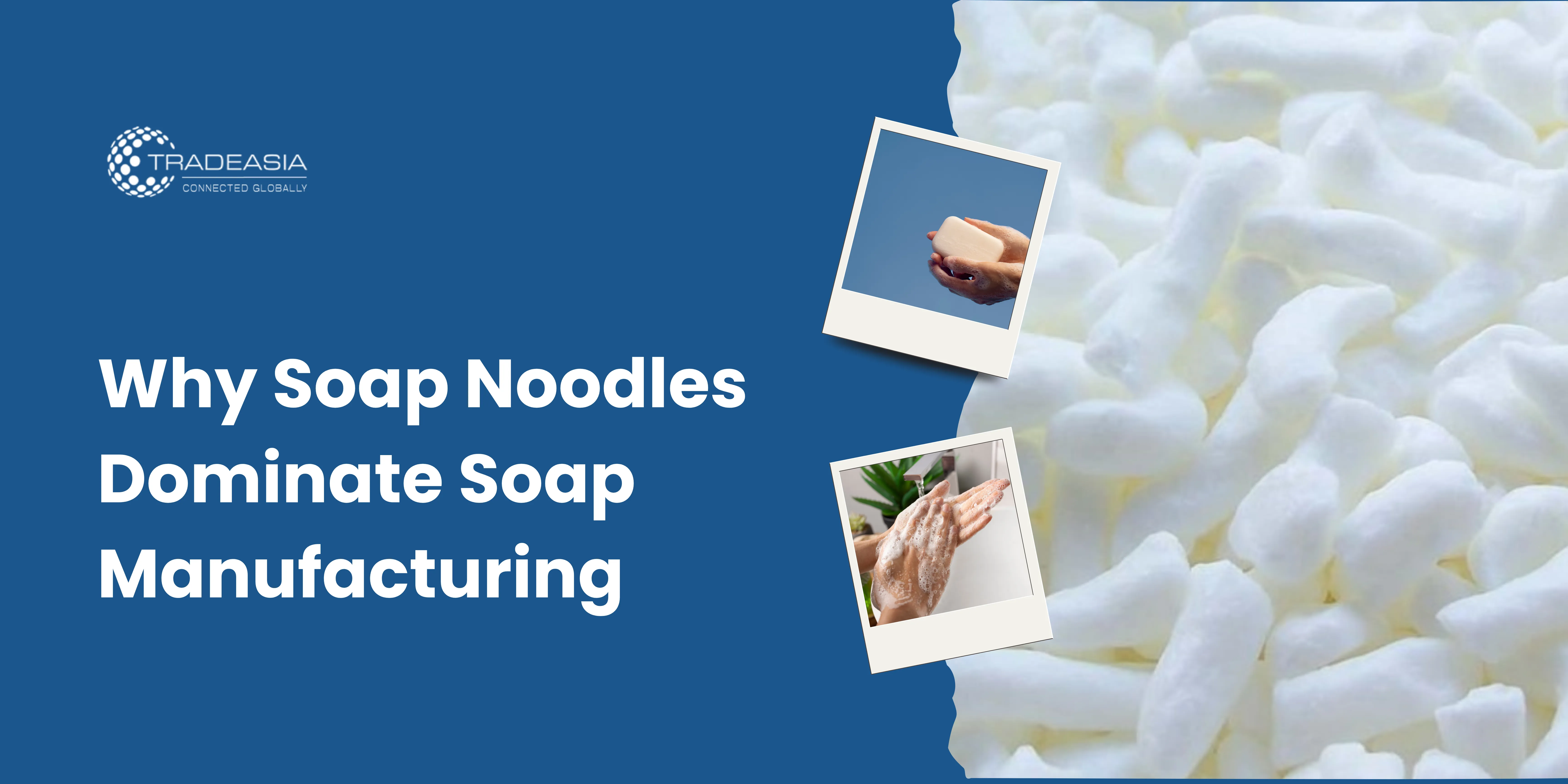Palm-based soap noodles are the primary raw material for soap manufacturing, derived mainly from palm oil. These noodles are used to produce various soap products, including bath soaps, laundry soaps, and industrial cleaning bars. With Indonesia being the largest producer of palm oil, it naturally plays a significant role in the global supply of soap noodles.
The soap noodles market in Indonesia has seen rapid growth due to the increasing demand for natural and sustainable ingredients in personal care and cleaning products. As global awareness about eco-friendly products rises, the demand for palm-based soap noodles is also growing.
Indonesia’s soap noodles industry has expanded over the years, with several manufacturers producing high-quality soap noodles for both domestic and international markets. The country’s strategic location, low production costs, and abundant raw materials make it a competitive player in the global market.
The Role of Indonesia in the Global Soap Noodles Market
Indonesia is a key player in the global soap noodles industry, thanks to its vast palm oil plantations. The country supplies a significant portion of the world’s soap noodles, particularly to markets in Asia, Europe, and Africa.
Several factors contribute to Indonesia’s dominance in the market:
-
Abundant palm oil supply – Indonesia is the world’s largest producer of palm oil, the primary raw material for soap noodles.
-
Competitive pricing – Lower production costs make Indonesian soap noodles more affordable compared to those from other regions.
-
Export-driven economy – A significant portion of Indonesia’s soap noodles production is for export, catering to international demand.
Indonesia’s presence in the global soap noodles market is expected to grow, as more countries seek sustainable and cost-effective soap raw materials.
Raw Materials and Production Process
Palm-based soap noodles are primarily derived from palm oil and palm kernel oil, which undergo a saponification or neutralization process to produce the final product.
Production Process:
-
Oil Refining: Crude palm oil (CPO) and palm kernel oil (PKO) are refined to remove impurities.
-
Hydrolysis/Saponification: The refined oils are converted into fatty acids and then reacted with an alkali (usually sodium hydroxide) to form soap.
-
Drying and Shaping: The soap mass is dried and extruded into noodle-shaped pellets.
-
Packaging and Distribution: The final product is packaged for both domestic and export markets.
Palm-based soap noodles can be customized based on customer needs, including variations in moisture content, free fatty acid levels, and additives like whitening agents or fragrances.
Market Trends and Demand for Soap Noodles in Indonesia
The soap noodles market in Indonesia is experiencing significant growth due to:
-
Rising consumer preference for natural and organic soaps
-
Increased demand from personal care and household cleaning industries
-
Growing awareness of sustainable palm oil-based products
-
Expanding exports to markets like India, China, and Africa
Indonesia’s domestic market also shows promising growth, with local soap manufacturers relying on palm-based soap noodles for production.
Sustainability and Environmental Concerns
As demand for palm-based products grows, sustainability has become a major concern. RSPO-certified (Roundtable on Sustainable Palm Oil) soap noodles are becoming more popular, ensuring that palm oil is sourced responsibly.
Indonesian manufacturers are adopting eco-friendly practices, such as:
-
Reducing carbon emissions in production
-
Implementing sustainable palm oil farming
-
Using renewable energy in factories
Sustainability is a key factor in the future of Indonesia’s soap noodles market.
Learn more about palm derivatives and sustainability
Challenges and Opportunities in the Industry
While Indonesia holds a strong position in the global soap noodles market, challenges remain:
Challenges:
-
Fluctuating palm oil prices – Affecting production costs and profit margins.
-
Environmental criticism – Deforestation and carbon emissions linked to palm oil production.
-
Global competition – Malaysia and Thailand also dominate the soap noodles industry.
Opportunities:
-
Growing demand for RSPO-certified soap noodles
-
Expanding markets in Africa and the Middle East
-
Advancements in production technology for efficiency
Companies that prioritize sustainability and innovation will gain a competitive edge.
Future Outlook of Indonesia’s Soap Noodles Market
The future of palm-based soap noodles in Indonesia looks promising, driven by:
-
Increased global demand for eco-friendly soaps
-
Advancements in palm oil processing and sustainability
-
Expanding distribution networks across Asia, Europe, and Africa
As sustainability becomes a bigger priority, manufacturers who adopt green practices will dominate the market. The Indonesian government is also promoting sustainable palm oil production, ensuring long-term growth for the soap noodles industry.
Conclusion
Indonesia’s palm-based soap noodles market continues to thrive, fueled by its abundant palm oil resources and strong export network. With increasing global demand for natural and sustainable soap products, the country is well-positioned to remain a dominant player in the industry.
For businesses looking to source high-quality soap noodles, Indonesia is a prime destination. Sustainable production practices and innovations in the industry will ensure long-term growth and global competitiveness.
? Find reliable soap noodles suppliers here:
? Chemtradeasia - Soap Noodles Supplier
? Palm Derivatives Industry Insights

Leave a Comment